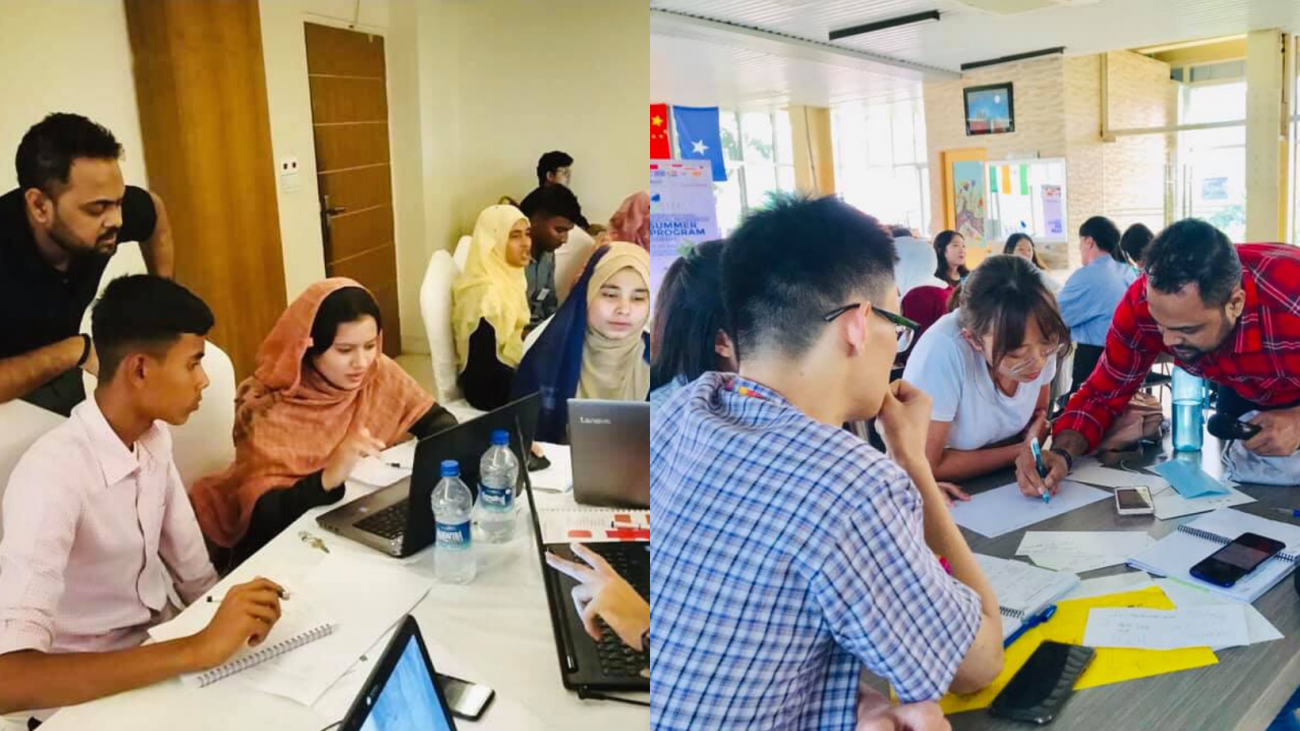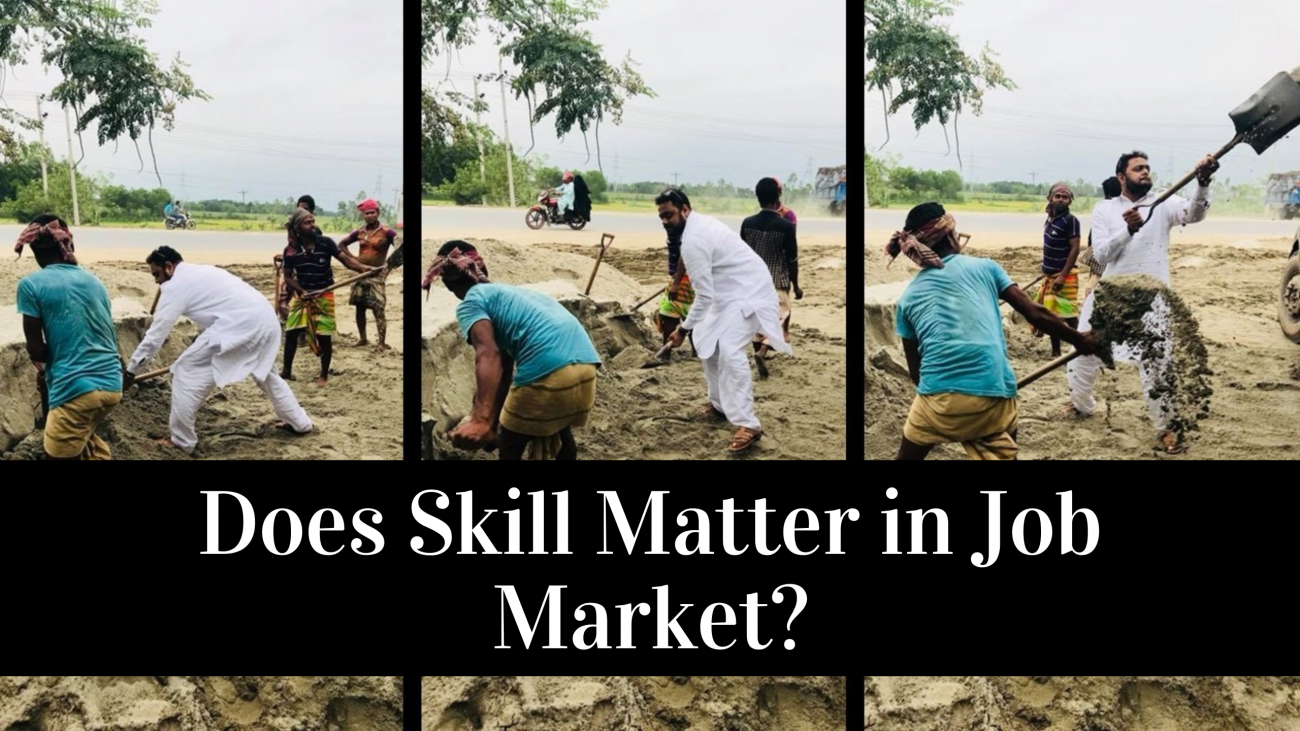Our Desire
Everyone is looking for job. The fresh graduates are looking for a job, and the person who is even working, he also wants to get a better job. That is the norms of the world I guess. In the process of finding a better job, some of us get it and some people will wait for a job.
Among all of us, we will find a category, who will be successful in getting their desired job. We call them lucky! We all may agree on the point that no one will give us a job as a gift! We have to achieve it or we have to prove that somehow I am the competent person among all and deserve the job. However, it is a tough place and success comes to the person who truly gives their best to prove them. There is a simple but open trick to get the success too.
That is, if we can match our knowledge, skills, experience, relationship and behavior with employer’s problems and fulfill expectations, then we will get into the spotlight. Are you thinking it is hard? Not at all. We just need to take careful steps ahead.
Our Belief
As human being, we always like to be proficient in our respective fields. To get success in our career we need to have different skills associated with our career and we have to go through the learning process to prove our excellence and ensure the care growth. If we stop learning new skills, it will automatically leave our position behind or someone else may take away our position. So in developing a successful career we need to remember it.
Learning something new is sometimes difficult too, especially at the beginning of the career when we start to learn. We make mistakes over and over again. In some cases, we leave the learning effort for the fear of making mistakes. But the reality is that the only way to learn something new is:
- to practice relentlessly,
- to make mistakes over and over again, and
- to be committed not to repeat the same mistakes again.
Canadian journalist, author Malcolm Gladwell, in his famous book Outliers, says that “ten thousand (10,000) hours of practice is required to be an expert in any one field.” on the other hand, Going a step further, author Josh Kaufman, in his book The Personal MBA, mentions that it takes about 20 hours of practice to get from “I can’t do anything to I can do one thing” – which is 45 minutes a day of regular practice.
So no matter what you want to be “fairly good” or “expert” in a subject, you need to practice. Various studies say that practice is also extremely difficult for those who have already acquired high skills in one subject and want to acquire skills in another new subject. And this is probably why many of the veterans are a little reluctant to acquire any new skills. They think that reading a book and discussion on a specific topic is enough to become competent in any skills. Our education system is the example of it.
Students are awarded degrees based on how well they can memorize. But at the present time it is universally acknowledged that skill is never possible by only reading and discussing. It requires learning by doing and practicing it over and over again. So skill development is very crucial.
Let me clear the facts with some Case studies:
Case#1:
I started my career in the Corporate Cell of a reputed organization. For the nature of my job, I had to keep communication with National & International organizations. I had to submit Project proposals. So many times, I had to submit the proposal in Bangladesh and which was a difficult job for me, as I didn’t know the Bengali typing. Therefore I had to depend on others. I used to take the help from one of my colleagues. First time he was enthusiastic. But when I started to send proposal then his facial expressions directly indicated me that he is not at all enjoying typing my tasks.
So I decided to learn it. I made my mind to learn Bengali typing. Firstly it took around 12 hours to type a single page. I didn’t leave the battle. I started doing it with more enthusiasm and I can proudly say I have the fastest typing skill in Bangla now.
Case#2:
As I am leading few organizations, I remain always engaged in Marketing and Promotional tasks. Sometimes, I have to depend on Graphic Designer, and sometimes, I depend on Video Editor. Yes, I get great cooperation, no doubt, but sometimes, we face such situation, where the production of promotional materials becomes very urgent. Neither I can rush to them, nor give support here. Because those are technical skills and we need to learn it. I have some experience here too.
Many years ago, for an urgent design task I worked with an official designer for long hours. I gave him all idea, contents and he also designed it as per requirements. I found a huge thrust while I found the output of the design materials. A small spelling mistake completely changed the idea of the event. I was trying to find how it happened? My findings were that, as the graphic designer type the content in the adobe illustrator so spelling mistake become the common problem in them.
From this incident, I took a decision to learn Graphics Design. I bought a book from New Market and started my designing effort. I could blame a person or a situation, but I felt, this is also an essential skills and learned it through rigorous practice. It is helping me to save my time and giving highest satisfaction too.
Case#3:
Similarly, we need to make video documentary on various topic. We collect the footage and we have a very skilled editing team who helps us to get the professional video documentary. It’s a very busy department and the members always remain busy in making video. So getting any essential output urgently sometimes become very much impossible for us. I thought why not I learn the same to support the urgent assignment. It’s not a rocket science that I will not be able to learn.
As I said, I started to learn it. I find out tutorial and I started editing the video. You may have seen my Video Documentary and all of them are done by me. I can work like a professional Video Editor now. How I did it? I had the patience to learn it and as soon as I learned it, I practiced it. I wanted to learn it from my heart, I utilized my time, resources, I had the interest and I succeeded here. It means we always have to have the patience for learning, learning can never ensure you that you will be the best here. Practicing is also important here. Practice makes you perfect. I applied this theory in my profession.
Our Mindset
Usually we all are born with a quality. We have the power to quickly grasp a clear idea of a subject by reading it with our minds and talking to friends. But in order to be proficient in any one subject, we must apply the knowledge we have acquired in real life. In fact, knowledge and skills are never the same thing. After gaining knowledge on a subject, you have to practice it hand-in-hand over and over again, then we can apply the skills. Also, you need to know the feedback from your friend or experienced person who have a progressive mind or advanced mind. It really helps to convert ‘no’ to ‘yes’.
Learning something new means you are initially thinking yourself inexperienced. You have the mindset of making mistakes through application, correcting opinions, and trying again and again to make yourself perfect. Undoubtedly it is now always easy to follow so many steps. Even though we know that the skills you want to add to your career are invaluable, we stop trying when we think of 20 to 10,000 hours of practice and go back to our old habits. We all know the importance of practice but the question is how can we make it possible?
Let me give you some suggestions:
-
Fix your target:
What do you want to achieve? Or what do you want to add or modify? That should be clear first. For example, now a day’s employers want presentation skills from every job seeker. If you have doubt on your own presentation skills or if you want to have more perfection, then only you can sketch the plan for learning and practicing. Otherwise you will be floating in the middle of the ocean like a boat without engine.
-
Constantly challenge yourself:
learning something new and gaining skills means working hard, accepting it and moving forward, and being honest with yourself about how difficult it will be to learn, especially when you are in a leadership role (by the way leading college or university club also means you are and you scope to sharpen your leadership traits).
-
Realize your limitations:
Even if we want, we can’t be perfect at everything. That is the reality. So we have to make ourselves proficient by practicing the subject again and again until we become confident that we have mastered well.
-
Careful about time:
We have to be committed to practice every day. Many people block time on the calendar or use many other methods which means to be committed to oneself and time. Remember this is a project and we are working as its head.
-
There is nothing wrong with having someone with you:
Working with classmates or co-workers to hold each other accountable for practice gives good results quickly.
-
Minimize Disruption:
We need to care about different sources of disturbance. For an example, we use social media platforms. Sometimes we devote ourselves in using it ignoring our important task during office times. We have to be careful about it.
Conclusion:
Lastly, my favorite tagline is “Practice makes Everything Possible (অনুশীলনে সবই সম্ভব)”. Just three words but has huge depth. In fact, it is a matter of faith. Whatever and however critical situation we face ahead, everything is possible in perfect practice. And in words, there is a long way to go in arguing about the object of faith. From today onwards, let us believe again that even if it is difficult or uncomfortable, it is true. ”In practice, everything is possible.
I want to conclude this write-up with a question “What new skills are you thinking of practicing now?”
Author
K M Hasan Ripon, Executive Director, BSDI
Email: [email protected]


